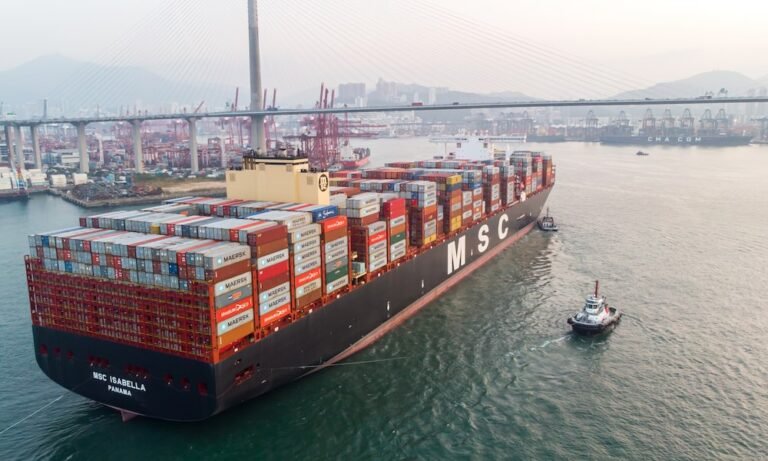The Future of Global Trade: Tariffs vs Free Trade
In the recent sale of CK Hutchison’s ports and terminals operation to a consortium of BlackRock and MSC, a debate has sparked regarding the future of global trade. While some believe that tariffs introduced by the United States signal the end of globalisation as we know it, others argue that free trade, particularly through the WTO, will prevail.
With a significant number of containerships on order, the question arises – will there be a market for these vessels, or will they be left idle in fjords like tankers in the past?
There are two types of tariffs to consider in this discussion. The first type is imposed by nations looking to protect their budding manufacturing industries from fierce competition. The second type is imposed by nations with higher living standards seeking to shield their industries by raising import costs.
Amidst these varying approaches, countries with low manufacturing costs, such as China, advocate for free trade. However, the reality is that most nations tend to lean towards protective measures to safeguard local industries and jobs.
While some tariffs are carefully calculated by experts to enhance domestic production, others are broad-spectrum measures championed by populist politicians to appease voters. The challenge lies in balancing the desire for affordable goods with the need for job security.
Despite the push towards protectionism, the global economy continues to be driven by the internet and the ISO container. These innovations have revolutionized manufacturing processes, enabling seamless international trade and production.
As we navigate the complexities of global trade, it’s essential to acknowledge the role of David Ricardo’s theory of comparative advantage. While not easily understood by all, this principle underpins the foundation of modern trade practices.
Ultimately, the future of global trade hinges on striking a balance between protectionism and free trade. As we witness shifts in economic policies and trade agreements, the evolution of globalisation remains a dynamic and evolving process.

